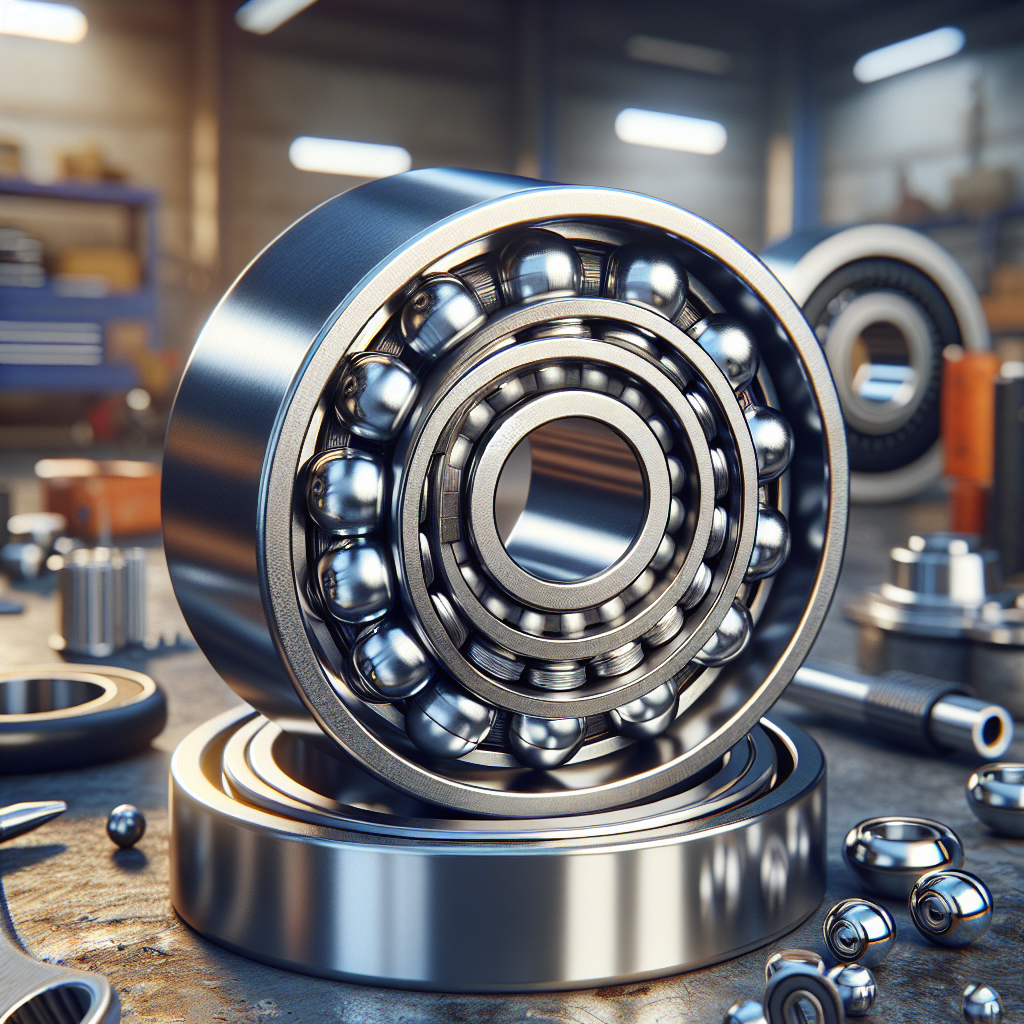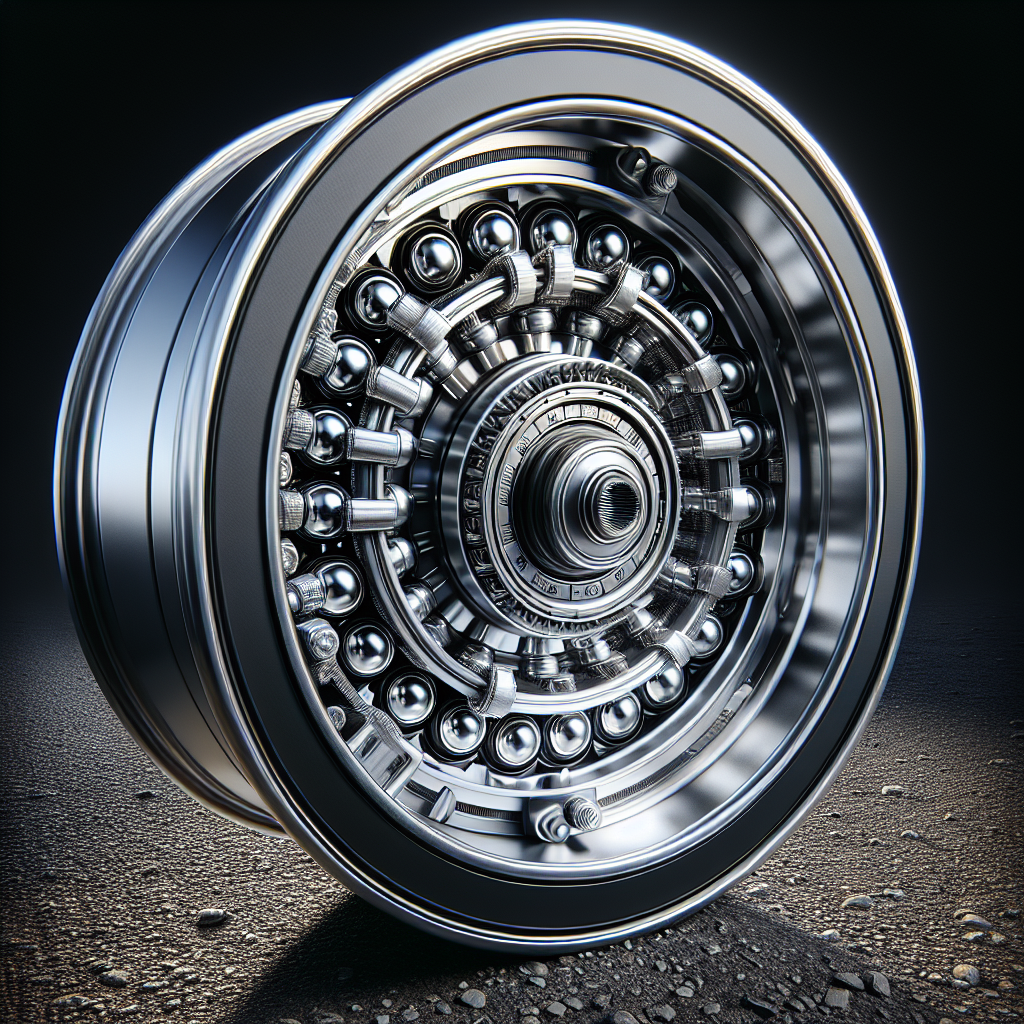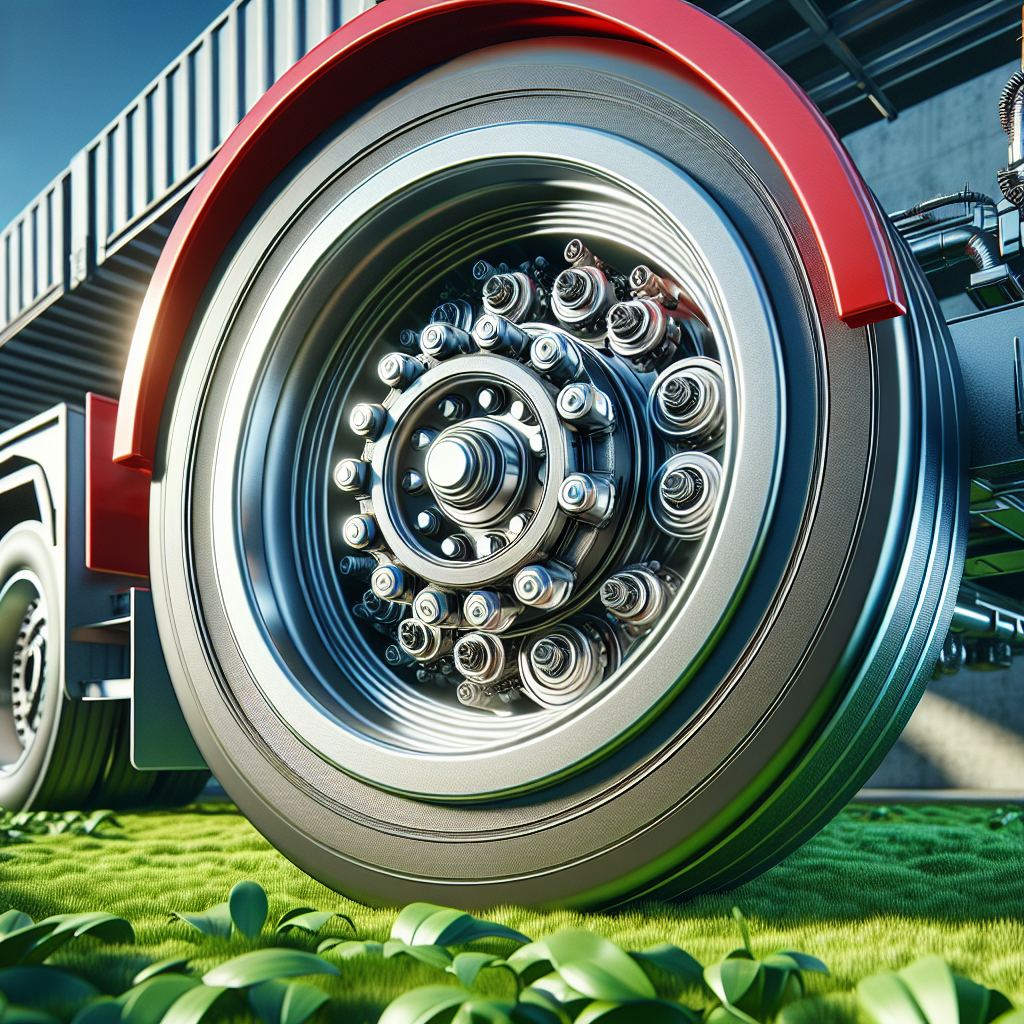

Trailer wheel bearings play a crucial role in ensuring the safe operation of your trailer. They are responsible for supporting the weight of the trailer and allowing the wheels to rotate smoothly. Understanding the importance of these components is vital for anyone who tows a trailer, whether for recreational purposes or commercial use.
When the wheel bearings function correctly, they reduce friction between the wheel and axle, thereby enhancing performance and longevity. However, if the bearings become damaged or worn out, it can lead to serious issues such as:
- Increased heat generation, which can cause further damage.
- Unusual noises like grinding or squeaking during operation.
- Difficulty in steering or maintaining control over the trailer.
Regular maintenance and inspection of trailer wheel bearings are essential to prevent catastrophic failures and ensure safe towing experiences. By being aware of the signs that indicate bad bearings, you can avoid costly repairs and downtime.
Tow with peace of mind, knowing that TrailerWatchdog is standing guard. Visit trailerwatchdog.com to learn how our monitoring system can help keep your trailer safe.
Common Signs of Bad Trailer Wheel Bearings

Identifying bad trailer wheel bearings early can save you from significant repair costs and potential accidents. Here are some common signs that indicate your wheel bearings may be failing:
- Unusual Noises: If you hear a grinding, humming, or whirring sound coming from the wheel area while driving, it could be a clear indication of worn-out bearings.
- Excessive Heat: After a short trip, carefully feel the hub of the wheels. If it is noticeably hotter than the others, it may suggest that the bearings are not functioning correctly and generating excessive friction.
- Vibration or Wobbling: If you experience vibrations in the trailer or notice that the wheels appear to wobble, this can indicate bearing failure. This instability can compromise the control of the trailer.
- Visual Wear: Regularly inspect the wheel bearings for any visible signs of wear, such as pitting or discoloration. If you see grease leaking from the seals, it indicates that the bearings may need immediate attention.
- Steering Difficulty: If you find it increasingly difficult to steer or maneuver the trailer, it might be due to issues with the wheel bearings.
By staying vigilant for these signs, you can take proactive measures to address any issues before they escalate, ensuring a safer towing experience.
How to Inspect Trailer Wheel Bearings Effectively
Inspecting your trailer wheel bearings is a crucial part of maintaining the safety and functionality of your trailer. Here’s a step-by-step guide on how to inspect trailer wheel bearings effectively:
- Gather Necessary Tools: Before you begin, make sure you have the right tools. You’ll need a jack, jack stands, a lug wrench, a hammer, and a bearing packer if you plan to repack the bearings.
- Lift the Trailer: Use the jack to lift the trailer and secure it with jack stands. This is essential for safely inspecting the wheel bearings.
- Remove the Wheel: Use the lug wrench to remove the wheel. This will give you direct access to the hub and bearings.
- Check for Play: Grasp the wheel at the top and bottom, and try to rock it back and forth. If there is any movement, it indicates that the bearings may be loose or worn.
- Inspect the Bearings: Remove the hub and carefully examine the bearings for any signs of damage, such as rust, pitting, or discoloration. Ensure that the grease is clean and not contaminated.
- Repack or Replace: If the bearings appear damaged or if the grease is dirty, it’s time to either repack them with high-quality grease or replace them altogether.
Regular inspections not only help in identifying issues early but also prolong the lifespan of your trailer. Make it a habit to check your wheel bearings periodically, especially before long trips.
Protect your trailer
Preventive Maintenance for Trailer Wheel Bearings

Engaging in preventive maintenance for trailer wheel bearings is essential to ensure a smooth and safe towing experience. By taking proactive steps, you can significantly reduce the risk of bearing failure and costly repairs. Here are some key practices to incorporate into your maintenance routine:
- Regular Inspections: Make it a priority to inspect your wheel bearings at least once every season, or more frequently if you tow heavy loads. Look for signs of wear, damage, or excessive play.
- Proper Lubrication: Ensure that your wheel bearings are properly lubricated with high-quality grease. Depending on usage, repack the bearings every 12 months or after every 12,000 miles to keep them in optimal condition.
- Check Seal Condition: Inspect the seals surrounding the bearings for cracks or wear. Damaged seals can lead to contamination and moisture ingress, which can severely affect bearing performance.
- Monitor Temperature: Keep an eye on the temperature of the wheel hubs during towing. An increase in temperature can indicate a problem with the bearings or insufficient lubrication.
- Use the Right Equipment: When replacing bearings, always use parts that meet or exceed OEM specifications. Using inferior components can lead to premature failure.
- Perform Regular Adjustments: If your trailer has adjustable wheel bearings, check and adjust them according to the manufacturer's recommendations to maintain proper tension and alignment.
By following these preventive maintenance tips, you can enhance the longevity and reliability of your trailer's wheel bearings, ensuring safer travels on the road.
When to Replace Your Trailer Wheel Bearings

Knowing when to replace your trailer wheel bearings is crucial for maintaining the integrity of your trailer and ensuring safe towing. Bearings are essential components that experience significant stress, and understanding the signs of wear can help you avoid hazardous situations. Here are some indicators that it might be time to replace your wheel bearings:
- Excessive Noise: If you hear a grinding, rumbling, or whining noise coming from the wheel area while towing, it’s a strong indication that your wheel bearings may be failing.
- Heat Build-Up: During a routine inspection, if you notice that the hub is unusually hot to the touch, this may signal that the bearings are not functioning properly and might need replacement.
- Play or Movement: Check for any play or movement in the wheel by rocking it back and forth. Any noticeable movement can indicate worn bearings that should be replaced.
- Visible Damage: Inspect the bearings for any visible signs of wear, such as pitting, discoloration, or rust. If you find these issues, it's time to replace the bearings.
- Frequent Seizing: If your trailer has a history of frequent wheel bearing seizing, it’s a sign that they are no longer functioning effectively and should be replaced.
- Age and Usage: Consider the age of your bearings and the conditions under which your trailer has been used. Bearings should generally be replaced every 12,000 miles or as recommended by the manufacturer, especially if you frequently haul heavy loads or travel in harsh conditions.
By being vigilant and recognizing these signs early, you can replace your trailer wheel bearings before they lead to significant damage or safety issues.
Conclusion on Trailer Wheel Bearing Care

In summary, proper care and maintenance of your trailer wheel bearings are essential for the overall safety and performance of your trailer. Regular inspections, timely replacements, and being alert to signs of wear can prevent catastrophic failures and costly repairs down the line. Remember, your trailer's wheel bearings are not just ordinary components; they are pivotal in ensuring smooth and safe towing experiences.
By following best practices for bearing maintenance, including greasing at recommended intervals and conducting thorough checks before long trips, you can significantly extend the lifespan of your bearings. Always prioritize safety and efficiency in your towing activities to enjoy peace of mind on the road.
Tow with peace of mind, knowing that trailerwatchdog is standing guard.




